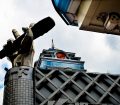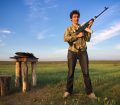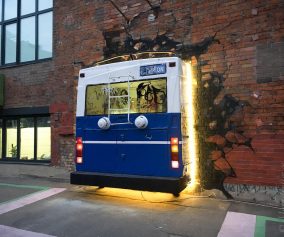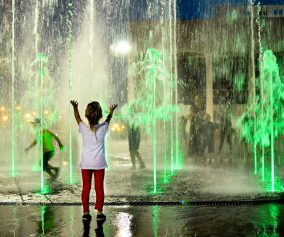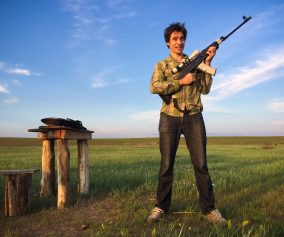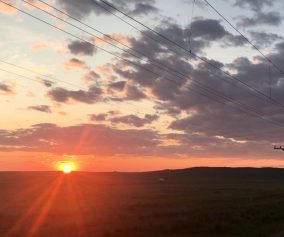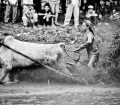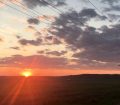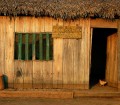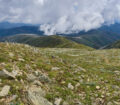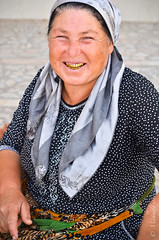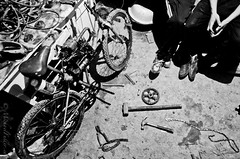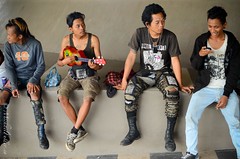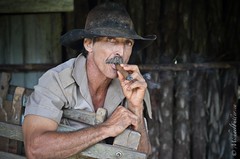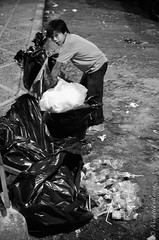
“Russia! But why?”
A question I’ve been asked many times in the months preceding this trip – and one I sometimes asked myself during it.
One reason is that I promised my nomadic Russian photographer friend Sasha I would. In 2010 we travelled together in Burma after meeting on the streets of Mawlawmyine – I even wrote then about his attempts to escape Russian military service. Five years later, we went across Uzbekistan together, and convinced each other to visit our respective homelands. (Your move, Sasha!)
But more importantly, my girlfriend Anna was born in Russia, but since leaving 24 years ago she’d never returned. It was time!
To Russia, with Difficulty
Every overland journey to a new country begins with a single step, across the border. And we had to get to that border: Manzhouli, a frontier town basically at the triple border with Mongolia. I already wrote a little about our train ticket booking (failure), and the hard-seat torture tickets.
That journey was exactly as expected, but thankfully I had earplugs, and Anna is a great pillow, so I got 2 hrs of sleep. I awoke at sunrise, in a fog. Metaphorically and literally: Dozens of shot towers – and other Industrial Revolutionesque architecture – were poking through the haze. Or maybe it was smog? There were piles of coal everywhere. It was 3:45am – so early, not because we were near the arctic circle, but because China has one time zone for a country the size of Australia.
Over the next couple hours the fog slowly burned off and the landscape revealed itself: Rocky outcrops with rolling hills gave way to open steppe and wild horses: it was postcard Mongolia. Then a few wind turbines appeared (be still, my beating heart). Not just any old turbines, either. Senvion “MM” turbines – my company’s beautiful babies!
Arriving in Manzhouli, there was little reason to linger beyond changing money, having a nap under a tree, and eating/buying food for our Russian train. (The latter two proving harder than you can imagine – the town seems to only exist to serve female Russian shoppers: it’s a sea of manicurists, hair salons, and Matrioshka doll markets.)
A few hours later, after solving the Rubix cube of securing passage on a Russian-operated border-crossing bus in China, we were on our way to taking that single step.
We said goodbye to the really friendly half Chinese, half Russian guy (who had helped us solve said Rubix cube) and asked his advice for entertainment over the coming trans-continental trip. He told us, “Just look out the window. Russia is like the cosmos!”
The border-buses are operated by Russian facilitators, who charge what might seem like a lot for what’s basically a 20km bus trip – but it’s worth every penny. The facilitators have a ‘special arrangement’ with the border guards that would allow us to jump the immigration queue. In Russia, things work smoothly if you know the right people.
Aboard the bus, our facilitator and driver conversed about our origins. We were the first foreigners they’d seen in a while. Anna’s passport had them thinking we were both Germans. The heavily muscled, deeply tanned, skinhead driver turned to us and said in broken english, “Hitler, kaput! Stalingrad, 1943! Bwahahaha”. I thought it odd that Russians, especially so far from Europe, were still talking about the war.
(I later learned that Putin’s national unifying narrative is one of strength and victory. Simply put, it goes like this: The western world is regularly and sometimes conspiratorially united in trying to attack Russia – whether Germany in WW2 or the the EU in Ukraine – and Russia is always, eventually victorious. Through state-controlled media, new national holidays, revising history textbooks, and military parades, Russians are consistently taught or reminded about past victories, especially WW2, and now the Crimea. And Stalingrad was actually the biggest battle in the history of warfare!)
Later the driver’s demeanour would turn more playful: He asked Anna her name, and replied in a surprised tone, “Oh, that’s actually not a bad name! I thought you’d be called something like ‘Brumhilde’…”
At the Chinese border. Guards appeared and had some problem with our passports. They were animated, asking our driver questions; he was shrugging and pointing back towards us. Uh oh, I thought. The guard came towards us, and my stomach turned a little. He pointed at our passports, and said in heavily-accented english, “Country?”
He couldn’t read english characters!
We steadily plodded through the border checkpoints. At the Russian customs counter the crowd behind us hissed unfriendly comments (not realising Anna speaks Russian) about us not being one of their people. One lady accused us (quite accurately) of looking like Germans. This palpably hostile atmosphere was no doubt worsened by our (official!!) queue-jumping.
As hectic as parts of the day were, it was all pretty straightforward, and the Russians dropped us right outside our train station with an hour to spare. We stepped off the bus and onto Russian soil – Anna for the first time in 25 years, and me for the first time ever. We were ready to start our journey across ‘the cosmos’. Over seven thousand kilometres of train tracks left to ride before Saint Petersburg.
As the bus sputtered away, the driver yelled something at Anna.
“Goodbye, Brumhilde!!”

Into the Cosmos
From our train, we watched the sun set over grasslands and gentle hills. This area is actually almost a triple border – with Mongolia – and looked the part. The vast empty landscape was like gazing into a fog: your eye searches endlessly for a focal point.
We awoke to the visual orchestra of prickly conifers, white-barked birch trees, wetlands, rivers, and wooden cottages (dachas) dotting the landscape, with smoke curling from some chimneys.


Next he offered us a breakfast shot. Knowing that vodka drinking in Russia, once started, only finishes when the bottle is empty, we told him “Thanks… but not yet.” He shrugged, and pulled out a can of fish. In what seemed like an advert for Russian hunting knives, he ignored the pull-ring, and cut open the can.
A few hours later, along with his brother Ivan, Emil from Kyrgyzstan, and Baba (“Grandma”), we were all downing vodka shots and stabbing pickles from the tiny jar. Anna and I had been in Russia for less than a day.
And it would take just two more days before we’d meet a giant, ethnically-Mongolian man named Genghis (seriously, this stuff writes itself) who took us out into the steppe with his Kalashnikov. But that story will have to wait until the next Experience.




